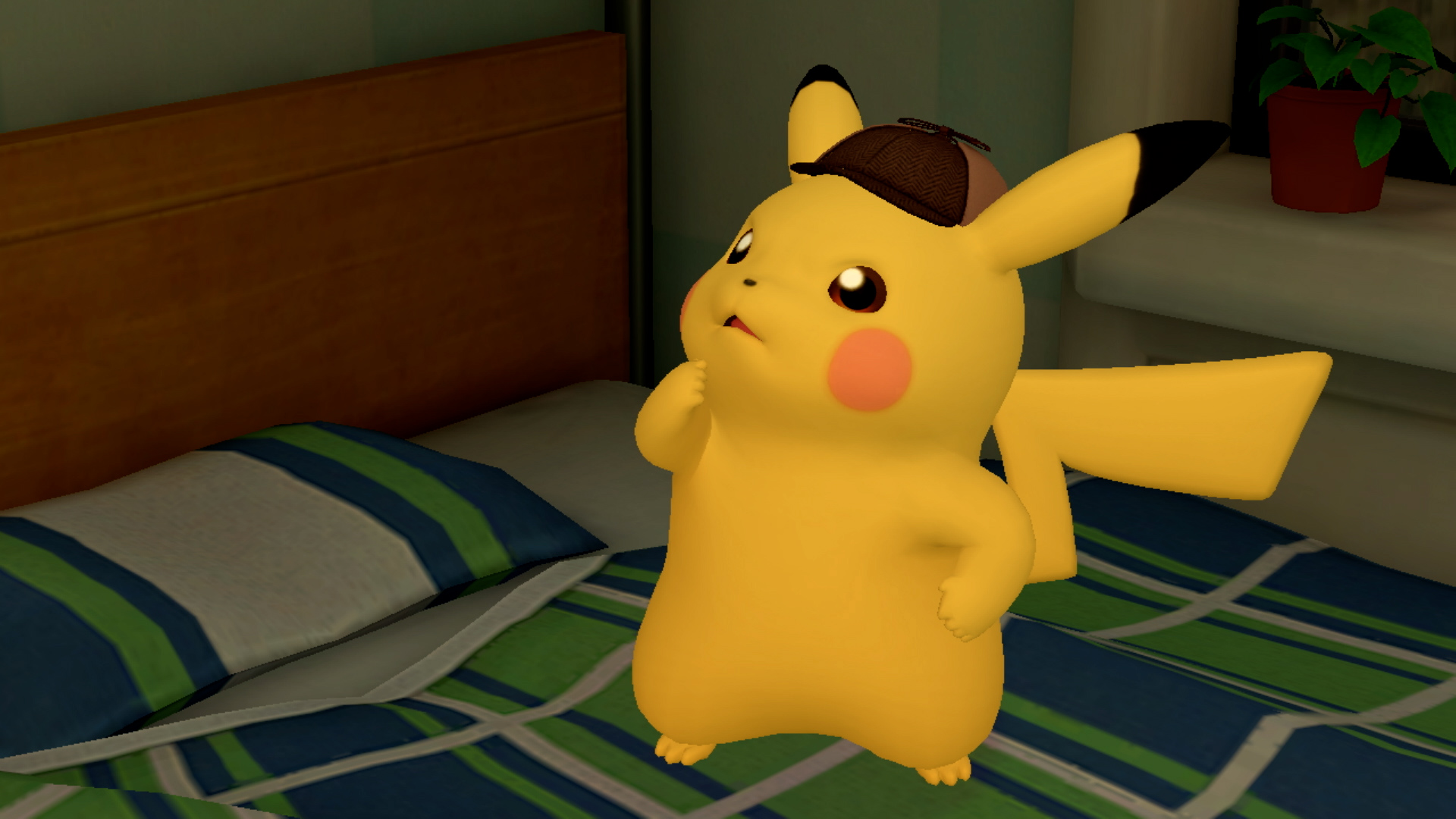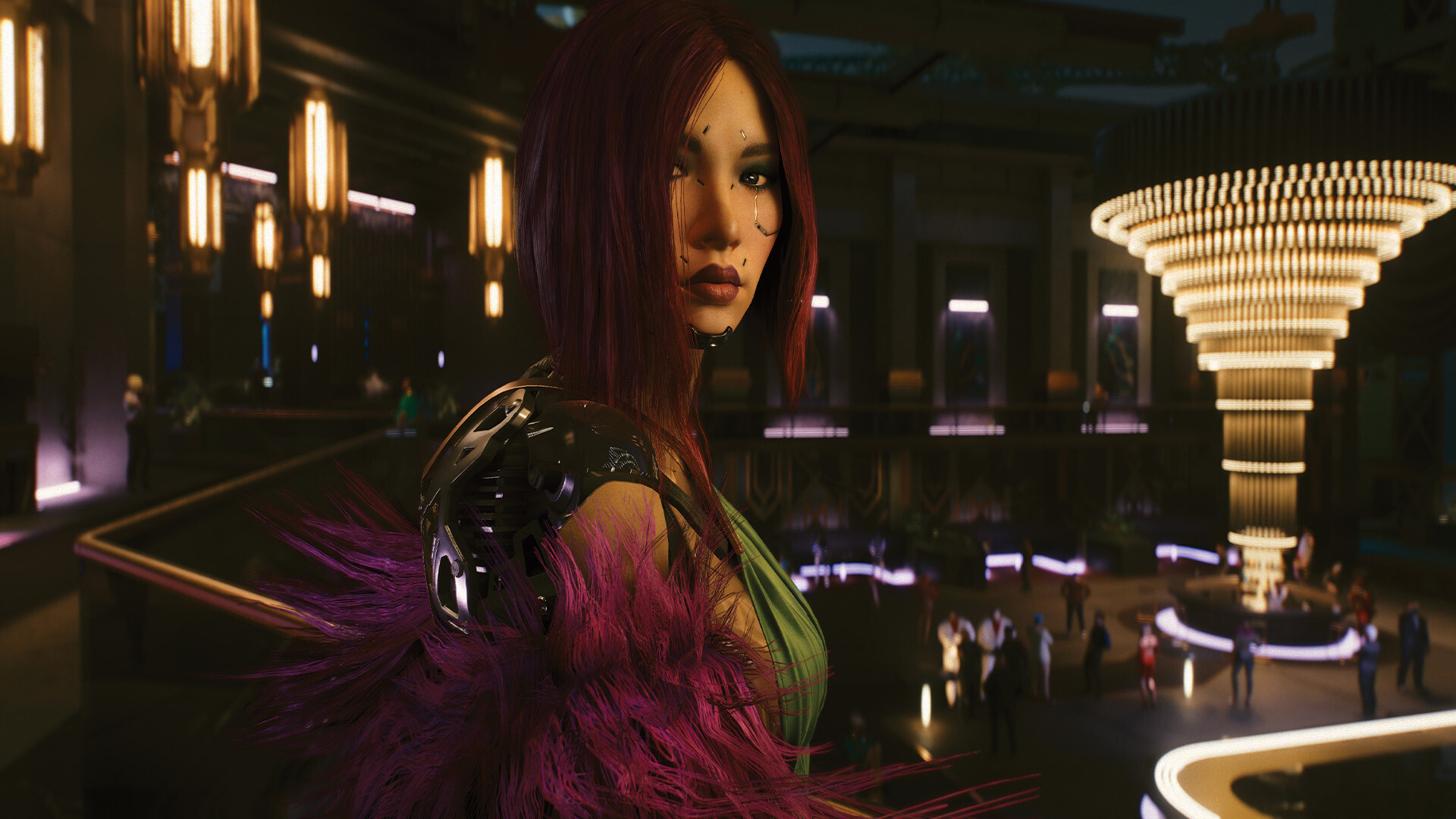Detective Pikachu Returns is more punk than Cyberpunk 2077: Phantom Liberty
Who’s the real monster?

Despite its cutesy exterior, the mystery adventure game Detective Pikachu Returns is one of the most punk games of the year. While Cyberpunk 2077’s 2.0 update has improved the sci-fi RPG’s own punk credentials enormously, the Phantom Liberty expansion offers few chances for players to stick it to the man.
Talk to a punk, and you’ll find out that the ideology is about more than looking cool and being anti-authoritarian. It’s about direct action, community-building, mutual aid, personal freedom and non-conformity. Though Phantom Liberty’s main character, agent Solomon Reed, is nuanced and compelling, he is a government agent through and through, uncompromising and utterly devoted to the New United States of America. Given that you spend most of the time working with him, it’s surprisingly tricky for Phantom Liberty players to keep the ‘punk’ in Cyberpunk.
For Pikachu, it’s about getting to the bottom of the mystery and finding justice
Despite his title, Detective Pikachu is a far less authoritarian figure by comparison. His latest game, Detective Pikachu Returns, has our hero fight to expose corruption within the Rhyme City police department, directly fighting against a secret faction that seeks to control the city’s Pokémon against their will. In the game’s fourth section, the wily detective even stages a prison break, having been wrongfully arrested.
Detective Pikachu isn’t a part of the police force. He’s more of a “consulting detective” like Arthur Conan Doyle’s Sherlock Holmes - he even has the iconic deerstalker hat. For Pikachu, it’s about getting to the bottom of the mystery and finding justice, not blindly following a dubious authority. What could be more punk than speaking truth to power?
More than a feeling

This isn’t to say that Cyberpunk 2077 doesn’t have its punk moments. The more nihilistic elements of the movement are represented in force, along with the iconoclastic fashion sense that accompanies them. For instance, those out and about in the game’s dystopian Night City metropolis might recognize a recurring message in the game’s graffiti: “No future.” This refers to a famous slogan used by British punks during the 1980s - speaking to the more fatalistic side of the movement.
Cyberpunk 2077: Phantom Liberty embodies this sense of hopelessness well, but by doing so, it focuses too narrowly on a single aspect of the punk vibe, neglecting the greater whole. There are very few paths through both the expansion and the main game that don’t wind up with you committing that most cardinal of punk sins: ‘selling out’. In Phantom Liberty, you repeatedly sell out to Solomon Reed, often without much in the way of player choice. For most of the expansion’s story, you blindly assist Reed in his spycraft, an arc that crescendos with the callous, cold-blooded murder of two Belgian hackers just because they were a potential liability. Sure, Phantom Liberty gets the nihilism right, but the way in which you’re forced to cooperate with a shadowy government intelligence agency is, at its core, as un-punk as it gets.
Working with a shadowy government intelligence agency is as un-punk as it gets
Even if your protagonist isn’t a narc, Phantom Liberty forces them to be complicit in narc behavior. This is true in the expansion’s side-quests, too, many of which take place in the run-down slums of Dogtown. Following the deposing of Dogtown’s first military dictator, you are given the opportunity to install a new leader. Unfortunately, both of your choices for a replacement are simply new flavors of jack-booted nightmare. No matter who you choose, Dogtown remains as awful as it was at the expansion’s start - a status quo that you are now complicit in upholding.
Get daily insight, inspiration and deals in your inbox
Sign up for breaking news, reviews, opinion, top tech deals, and more.
Fighting the power

Punk is more than just nihilism. Collectivism, personal freedom, and individual expression are also at the heart of the movement - virtues that Detective Pikachu Returns does well to embody. The main story is centered around the newly formed Pokémon Protection Bureau, a division of the police formed to “manage” the city’s Pokémon population. Early on, we learn that this group is not only corrupt but also a front for a conspiracy to control the city’s Pokémon using mysterious artifacts.
Pikachu won’t stand for it, and soon, his inquiries into the Pokémon Protection Bureau’s corruption land him in prison, falsely arrested by a slimy police lieutenant. From here, Pikachu teams up with the other inmates, embodying the punk values of mutual aid and collective action. Working with a Luxray, an ornery electric-type Pokémon, Pikachu stages a prison escape, helping those inmates who can’t help themselves.

What’s more, it turns out that the Pokémon were being controlled by strange devices attached to their backs, capable of robbing the creatures of their free will. Throughout the game, Pikachu’s main goal is to cease the production of these machines, preserving the autonomy of the city’s Pokémon population. As political goals go, fighting against the enslavement of your own people is as punk as can be. Pikachu doesn’t stop there either, continuing his investigation and eventually exposing even greater corruption in Rhyme City’s government.
V is prepared to do moral summersaults, bending their principles to make cash where it suits them
Next to this, Cyberpunk 2077’s police bounty system sticks out like a sore thumb. Even after the 2.0 update, the game still rewards you for killing targets who have police bounties on their heads - ironic given that many of protagonist V’s closest friends and confidants also carry police bounties - including fan favorite heartthrob Judy Álvarez. What this means is that V is prepared to do moral summersaults, bending their principles to make cash where it suits them.
Pikachu is made of sterner stuff, it seems. Were Detective Pikachu transplanted into the grim sci-fi world of Cyberpunk 2077, it seems unlikely that he’d side with Solomon Reed. Instead, he’d likely opt to skip Phantom Liberty entirely - doing his best to get to the bottom of the corruption that infests Night City. Though it seems unlikely that he would succeed, I’m confident that Detective Pikachu would never sell out.
Looking for more immersive experiences? Our lists of the best single-player games will help get you sorted, as will our guide to the best RPGs.

An editor and freelance journalist, Cat Bussell has been writing about video games for more than four years and, frankly, she’s developed a taste for it. As seen on TechRadar, Technopedia, The Gamer, Wargamer, and SUPERJUMP, Cat’s reviews, features, and guides are lovingly curated for your reading pleasure.
A Cambridge graduate, recovering bartender, and Cloud Strife enjoyer, Cat’s foremost mission is to bring you the best coverage she can, whether that’s through helpful guides, even-handed reviews, or thought-provoking features. She’s interviewed indie darlings, triple-A greats, and legendary voice actors, all to help you get closer to the action. When she’s not writing, Cat can be found sticking her neck into a fresh RPG or running yet another Dungeons & Dragons game.